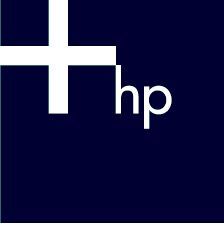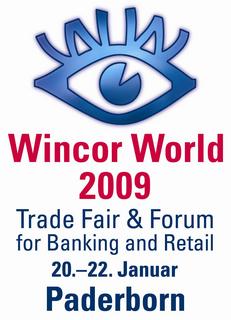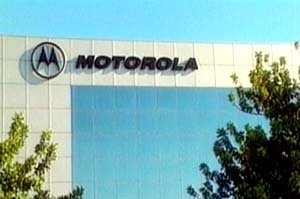President Clinton proposed boosting government spending on computer security by some $280 million as part of a long-term plan to guard against threats ranging from hackers to terrorists.
Published:
9 January 2000 y., Sunday
Clinton_s plan to defend America_s "information infrastructure," includes a $160 million increase in spending on computer security research, college scholarships for students who agree to work for the government as security specialists and plans to share public and private research.
Potential threats ranged from the hobbyist-hacker to countries or terrorists attacking U.S. computer systems to cripple the economy, said Richard Clarke, head of counterterrorism for the U.S. National Security Council.
Republicans involved in the issue generally welcomed the plan, but said it came late and fell short in some areas. The White House had targeted a May 1999 deadline, and officials said on Friday they needed more time to do the job right.
Clinton will request $2.03 billion for computer security in his 2001 budget request next month, up from $1.75 billion in 2000, White House Chief of Staff John Podesta told reporters.
Included are boosts in research spending on information security to $621 million from $461 million, and $91 million in new initiatives. Other related increases brought the total spending increase next year to $280 million, officials said.
Clinton proposed offering college scholarships to students in the field of computer security in exchange for their government service afterward.
Starting pay for such recruits, who are in high demand in the private sector, may need to be sharply increased from existing government pay scales, Clarke said.
Clinton also proposed an institute to fund research in areas not pursued now by either the public or private sector.
Copying, publishing, announcing any information from the News.lt portal without written permission of News.lt editorial office is prohibited.
The most popular articles
Software company announced new structure_ of it_s business.
more »
 According to the council's report, ATM-skimming fraud, which involves illicitly copying ATM card information stored on magnetic stripes, is increasing in Europe.
more »
According to the council's report, ATM-skimming fraud, which involves illicitly copying ATM card information stored on magnetic stripes, is increasing in Europe.
more »
 Building on the success of the recent HP TouchSmart PC for the home, HP today introduced the market’s first all-in-one, touch-enabled desktop PC for businesses.
more »
Building on the success of the recent HP TouchSmart PC for the home, HP today introduced the market’s first all-in-one, touch-enabled desktop PC for businesses.
more »
 Microsoft Corp. Chief Executive Officer Steve Ballmer announced the beta availability of the Windows 7 operating system as well as the availability of the latest version of the Windows Live, a suite of personal communications services and applications.
more »
Microsoft Corp. Chief Executive Officer Steve Ballmer announced the beta availability of the Windows 7 operating system as well as the availability of the latest version of the Windows Live, a suite of personal communications services and applications.
more »
 Cash-cycle management, branch optimization, sales/marketing consultation and automation, automated checkout and managed services are expected highlights for January's Wincor World 2009.
more »
Cash-cycle management, branch optimization, sales/marketing consultation and automation, automated checkout and managed services are expected highlights for January's Wincor World 2009.
more »
 We all need to better understand the media we are touched by daily, especially the young, says Austrian Socialist Christa Prets. MEPs backed her report on “media literacy in a digital world” on Tuesday.
more »
We all need to better understand the media we are touched by daily, especially the young, says Austrian Socialist Christa Prets. MEPs backed her report on “media literacy in a digital world” on Tuesday.
more »
 Since October, readers of the European Parliament's web pages have had access to RSS, which allows them to keep up-to-date with what is going on via a free subscription.
more »
Since October, readers of the European Parliament's web pages have had access to RSS, which allows them to keep up-to-date with what is going on via a free subscription.
more »
 Fox and Motorola collaboration results in first all-HD programming distribution strategy.
more »
Fox and Motorola collaboration results in first all-HD programming distribution strategy.
more »
 Wincor Nixdorf has won a contract to integrate its cash management solution, consisting of staff-assisted self-service terminals, software and comprehensive services, in the checkout zones and IT operations of Shell Deutschland’s 1,300 service stations.
more »
Wincor Nixdorf has won a contract to integrate its cash management solution, consisting of staff-assisted self-service terminals, software and comprehensive services, in the checkout zones and IT operations of Shell Deutschland’s 1,300 service stations.
more »
 The role that the internet can play in parliamentary democracy was explored this week when 400 people gathered in Brussels for the annual “e-Parliament conference”.
more »
The role that the internet can play in parliamentary democracy was explored this week when 400 people gathered in Brussels for the annual “e-Parliament conference”.
more »
 The EU’s new digital library brings vast treasure trove of historical documents, rare and valuable manuscripts and exquisite cultural artefacts to your desk.
more »
The EU’s new digital library brings vast treasure trove of historical documents, rare and valuable manuscripts and exquisite cultural artefacts to your desk.
more »